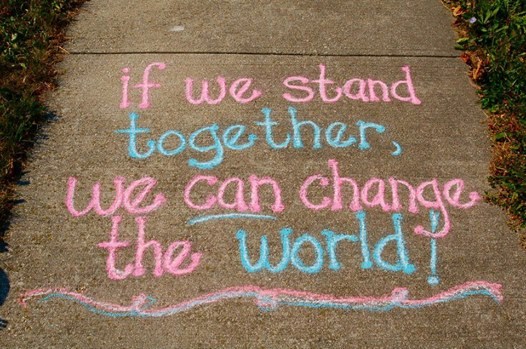Student organizing is strenuous work for any student on any college campus, but student organizing on college campuses in the Deep South is especially difficult. Though challenging, student organizers and student activists have the ability to do create national dialogues about serious social issues as evidenced through the Carrying the Weight Together campaigns against sexual assault and die-ins protesting racial injustice.
Speaking from my experiences as a student organizer at The University of Alabama, progressive student-led activist organizations in the South face not only cultural barriers, institutional barriers and organizational barriers, but often encounter barriers from fellow “progressive” organizations as well.
Student activist organizations, particularly those already on the fringe of social acceptability (i.e. feminist organizations, LGBTQ+ organizations, etc.), must be strategic in the way in which we navigate student affairs and the administration. In order to get funding for our organizations, we have to ensure our work isn’t too controversial or use inflammatory language like “Sex”.
Additionally, unlike at most schools throughout the nation, at The University of Alabama we have no free speech zone. This means that any protest, demonstration, or march is in the hands of a “University Affiliate” who must deem the event appropriate and issue a Grounds Use Permit. The organization I coordinate has had several Grounds Use Permit applications (merely requesting to have club information tables on the Quad) ignored. To be eligible for the permit, students must have formed an “approved student organization,” which entails a significant amount of red tape and presents several organizational obstacles including having officers, a faculty advisor and attending new organization trainings.
Furthermore, campus apathy is a large source of the organizational barriers facing student activist organizations. At The University of Alabama, we have discussions and dialogues that begin when we make (negative) national headlines, but we have a difficult time creating a consistent and effective movement for change beyond a one-time demonstration.
This apathy is not exclusive to students. Faculty and staff members along with academic departments are similarly apathetic in regards to social and institutional issues and often only support “safe” organizations. And despite all we know about the Machine, our administration continues to allow this secret organization (which has a sinister history) the ability to choose student government leaders and create scandals that extend into the community-at-large. (Btw, congrats again to Elliot Spillers for beating the Machine candidate this year for the first time in sooo long!)
Along with the aforementioned cultural, institutional and organizational barriers, progressive student organizations have an additional barrier to face as well: each other. Though I can’t speak for every college campus or even every Southern campus, I suspect this issue is not isolated to Tuscaloosa. A closely-knit progressive community is essential to creating long lasting change in the campus social environment.

Student leaders who are more invested in improving their résumé than in the movement create this additional barrier through their self-centeredness. We should be student leaders because of our genuine desire to advance progressive ideals and increase inclusion and equity both on campus and throughout our communities. Not merely for personal gain.
Student activists in the South have the potential to keep conversations moving and create change through activism. Just last semester, over 300 students convened in The University of Alabama’s Ferguson Center student union to silently protest racial injustice and police brutality. The progressive community at Auburn University held successful protests during the fall 2014 semester on both reproductive rights and police brutality. Already this year students in Georgia have been protesting discrimination and educational inequalities against non-documented students.
These are just a few examples of how impactful Southern student activists can be when we work together to overcome the cultural, institutional and organizational barriers we face as a community. Rather than holding grievances and grudges against like-minded individuals and organizations, we must keep in mind our larger goals for systemic and institutional changes. Moreover, we must aim to empower others on our campuses to become involved in campus social movements. As an individual it will be impossible to overturn systems of oppression and oppressive organizations like the Machine. However, as an activated collective of concerned students we have the power to do just that.


